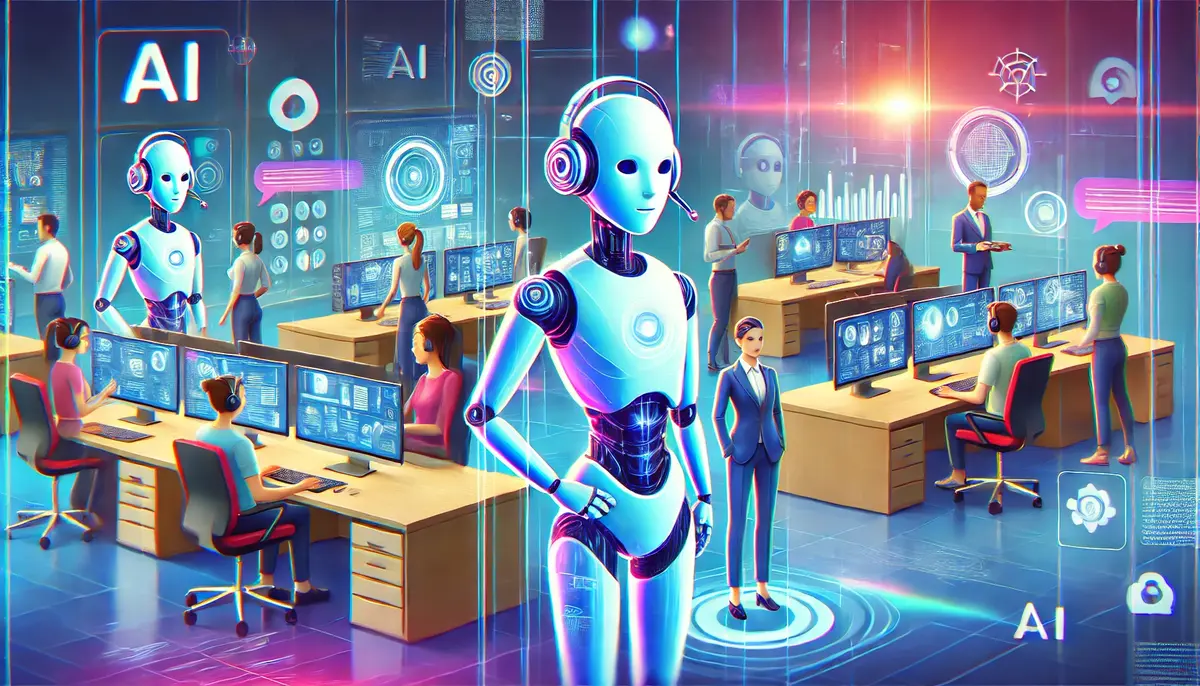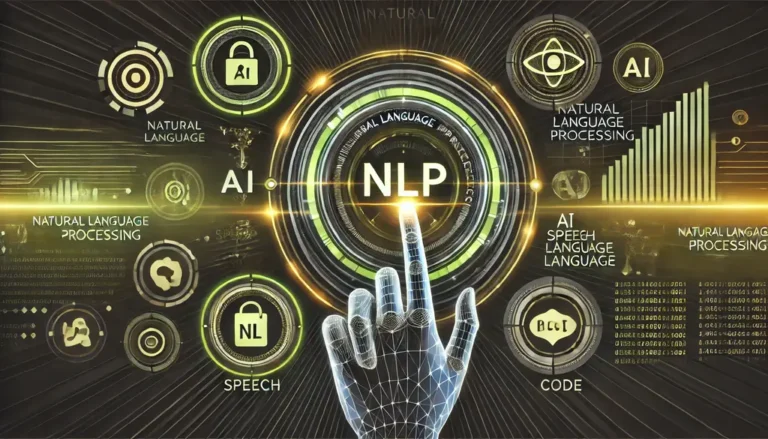The landscape of customer service is evolving rapidly, with contact center AI trends leading the charge in 2024. Artificial intelligence is no longer a futuristic concept but a critical component in transforming how contact centers operate, enhancing efficiency, customer satisfaction, and overall business performance.
This comprehensive guide delves into the significant contact center trends powered by AI, offering actionable insights for businesses aiming to stay ahead of the curve.
Save cost, make money, and boost customer experience!
Get Bigly Sales today
How it All Began?
The COVID-19 pandemic brought unprecedented challenges to contact centers, with call volumes surging and staffing levels dropping. These disruptions highlighted the need for innovative solutions, propelling the adoption of AI to handle increased demand and improve customer service quality. As we move through 2024, AI continues to reshape the contact center industry, providing scalable, efficient, and cost-effective solutions.
Addressing Workforce Gaps with AI
The pandemic’s impact on workforce availability has been profound, with contact centers facing significant staffing shortages amid rising call volumes. AI is emerging as a powerful tool to bridge this gap, offering a way to manage customer interactions without overburdening human agents.
How AI Fills the Void
AI technologies, such as chatbots and virtual assistants, can handle routine inquiries and simple tasks, allowing human agents to focus on more complex issues that require personal attention. This approach not only reduces the workload on human agents but also ensures that customer service remains efficient and responsive, even during peak times.
A Harris Poll revealed that 55% of companies accelerated their AI adoption plans in 2020, with 67% planning further advancements. This trend underscores the growing reliance on AI to supplement human capabilities in contact centers.
Practical Application
Companies are deploying AI-driven solutions like digital assistants that can guide customers through self-service options or handle initial inquiries, freeing up human agents for higher-value interactions. AI-driven training programs are also enhancing the skills of existing employees, making them more effective in their roles.
Enhancing Customer Interaction
Effective customer service involves more than just resolving issues; it requires understanding and responding to the nuances of human conversation. AI technologies are increasingly capable of recognizing and adapting to these subtleties, making interactions more natural and effective.
AI’s Growing Intelligence
Modern AI applications leverage natural language processing (NLP), machine learning, and reinforcement learning to understand not just the content of customer interactions but also the context and emotional tone. This capability allows AI systems to respond appropriately to the customer’s mood and sentiment, providing a more personalized and empathetic service.
Mosaicx uses advanced AI techniques to deploy agents that continuously learn and improve, allowing them to pick up on tone, inflection, and context. This leads to more accurate responses and a better overall customer experience.
Benefits for Businesses
By understanding the nuances of human conversation, AI can deliver more tailored and effective responses, enhancing customer satisfaction and loyalty. This ability to interpret and respond to emotional cues helps build a more human-like interaction, even when a real human isn’t involved.
AI’s ability to understand and respond to conversational nuances enhances customer interactions, leading to higher satisfaction and loyalty.
Expanding Self-Service Customer Experience
Customers today increasingly prefer to solve their issues independently, without needing to wait for human assistance. AI-powered self-service solutions are at the forefront of this trend, providing faster, more efficient ways for customers to get the help they need.
From Chatbots to Intelligent Virtual Agents
Traditional self-service tools like chatbots and interactive voice response (IVR) systems are evolving into more sophisticated intelligent virtual agents (IVAs). These advanced systems use AI to understand natural language, allowing customers to express their issues in their own words and receive immediate assistance.
A study found that 73% of customers prefer to solve issues on their own, emphasizing the growing demand for self-service options.
Enhancing Customer Experience
IVAs provide a more flexible and intuitive self-service experience compared to traditional systems. They can handle a wider range of inquiries and provide accurate responses based on the context of the conversation. This reduces wait times and increases customer satisfaction by allowing for quicker problem resolution.
AI-powered self-service solutions offer a more intuitive and flexible way for customers to resolve issues, enhancing the overall customer experience.
24/7 Customer Service Availability
Customers expect support to be available at any time of the day or night. AI’s ability to provide 24/7 service is revolutionizing contact center operations, ensuring that help is always available.
AI’s Role in Continuous Support
AI-driven systems can handle basic inquiries and routine tasks around the clock, reducing the need for human agents to be available at all hours. This capability allows businesses to offer consistent, reliable service while also optimizing staffing levels.
AI can manage a high volume of interactions without needing breaks or downtime, providing seamless support to customers regardless of the time.
Business Benefits
By providing 24/7 support, businesses can enhance customer satisfaction and loyalty, offering the convenience and reliability that modern consumers expect. This also allows human agents to work more regular hours, improving their work-life balance and job satisfaction.
AI enables contact centers to provide continuous, around-the-clock customer support, meeting modern expectations for availability and reliability.
Cost-Effective AI Solutions
Investing in AI technology may seem expensive initially, but the long-term benefits far outweigh the costs. AI solutions can improve service quality, reduce operational costs, and offer significant returns on investment.
ROI and Cost Savings
Research suggests that by 2030, 45% of economic gains will be driven by product enhancements like AI. Companies adopting AI technologies can expect to see substantial savings in operational costs, as AI handles routine tasks efficiently, freeing up human resources for more complex and revenue-generating activities.
Mosaicx offers transactional AI technologies that charge only for productive time, eliminating overhead fees and allowing businesses to scale support as needed. This model maximizes ROI by aligning costs directly with usage and productivity.
Strategic Investment
AI not only reduces costs but also provides valuable insights into customer behavior and preferences. These insights can inform strategic decisions and enhance customer engagement, leading to increased revenue and business growth.
AI solutions offer significant cost savings and improved service quality, making them a smart and strategic investment for contact centers.
Gaining a Competitive Advantage
As AI becomes more integrated into contact center operations, companies that adopt these technologies gain a competitive edge. Customers expect businesses to understand their needs and provide personalized service, and AI helps meet these expectations.
AI as a Differentiator
AI enables businesses to offer seamless, intuitive customer experiences by reducing hold times, handling repetitive questions, and providing 24/7 support. These capabilities help businesses stand out in a competitive market, attracting and retaining customers more effectively.
Businesses that utilize AI for contact centers report higher year-over-year revenue and improved customer retention, highlighting the competitive advantages of adopting AI technologies.
Enhancing Customer Relationships
By leveraging AI, businesses can provide more personalized and efficient service, building stronger relationships with customers. This leads to increased customer satisfaction and loyalty, essential factors for long-term success.
Implementing AI in contact centers provides a significant competitive advantage, enhancing customer satisfaction and driving revenue growth.
Addressing High Call Volumes and Post-COVID-19 Challenges
The pandemic’s impact on contact center operations has underscored the need for flexible and scalable solutions. AI is playing a crucial role in helping businesses manage high call volumes and adapt to the evolving landscape.
Future-Proofing Contact Centers
AI technologies help contact centers handle increased demand effectively, even with reduced staffing levels. This flexibility allows businesses to scale their operations as needed, ensuring that they can continue to provide high-quality service even during periods of high call volume or other disruptions.
AI-driven solutions are being used to streamline operations, improve response times, and enhance service quality, helping businesses navigate the challenges brought about by the pandemic and beyond.
AI helps contact centers manage high call volumes and adapt to ongoing challenges, ensuring resilience and high-quality service in a post-pandemic world.
Save cost, make money, and boost customer experience!
Get Bigly Sales today
The Future of Contact Center AI Trends
The integration of AI in contact centers is not just a trend but a crucial strategy for businesses aiming to stay competitive and meet evolving customer expectations. The contact center AI trends outlined above highlight the transformative potential of AI, offering solutions to staffing challenges, enhancing customer interactions, expanding self-service capabilities, providing continuous support, offering cost-effective solutions, and delivering a competitive edge.
Businesses that embrace these contact center trends will be well-equipped to navigate the future of customer service, building resilience, enhancing satisfaction, and driving growth. As AI continues to advance, its role in contact centers will only become more integral, shaping the future of customer interactions and service delivery.







